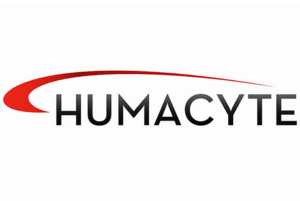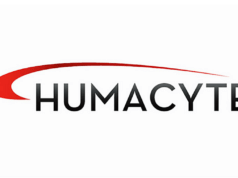 Humacyte, a clinical-stage biotechnology platform company developing “universally implantable, bioengineered human tissue at commercial scale”, has announced in a press release the publication of controlled in vitro studies in the Journal of Vascular Surgery—Vascular Science describing the scientific basis for the “significantly lower rates of infection” observed in a clinical trial of the investigational human acellular vessel (HAV) compared to synthetic expanded polytetrafluoroethylene (ePTFE) grafts.
Humacyte, a clinical-stage biotechnology platform company developing “universally implantable, bioengineered human tissue at commercial scale”, has announced in a press release the publication of controlled in vitro studies in the Journal of Vascular Surgery—Vascular Science describing the scientific basis for the “significantly lower rates of infection” observed in a clinical trial of the investigational human acellular vessel (HAV) compared to synthetic expanded polytetrafluoroethylene (ePTFE) grafts.
The in vitro study results show, the release details, that the HAV had more host cell infiltration than ePTFE grafts, and that the biocompatibility of the HAV supported neutrophil viability and function, each of which may explain the HAV’s superior resistance to bacterial infection versus ePTFE grafts observed in the clinical trial.
The publication, titled Biological Mechanisms of Infection Resistance in Tissue Engineered Blood Vessels Compared to Synthetic ePTFE Grafts, combined histological evaluation of the HAV and ePTFE explants from both preclinical and clinical studies as well as in vitro experiments assessing the viability and function of human neutrophils on these materials. Neutrophils are a critical cell type for host defence against infection, the release explains. Data analysed from a comparative clinical trial demonstrated that the HAV had a significantly lower infection rate than ePTFE grafts.
A biological rationale for this finding was then shown through explant histopathology and cell experiments which demonstrated that the HAV, but not ePTFE grafts, supported neutrophil viability and function. These results continue to build upon the functional benefits of HAV biocompatibility which has been previously observed to permit adaptive host vascular remodelling and now host immune activity for infection resistance.
“This study further supports that the HAV has the potential to serve as a breakthrough treatment to save the lives and limbs of patients suffering from a wide range of medical conditions, from trauma to peripheral artery disease (PAD),” said Laura Niklason, CEO of Humacyte. “Our goal is to provide a solution that overcomes the current limitations in existing standards of care, in this case remembering that vascular graft infection can be a devastating and costly outcome for patients already suffering from severe and complex conditions.”
Vascular graft infection represents a significant clinical and economic burden in the USA, with a tremendous impact on patient quality of life and an estimated cost of over US$1 billion per year. Complications of infection can include amputation, sepsis, and death. Synthetic vascular grafts, such as those constructed from ePTFE, suffer from infection rates as high as 28% when used for dialysis access and between 20–35% when used in vascular trauma repair.
The press release concludes that the HAV has accumulated over 1,000 patient years of experience worldwide in a series of clinical trials in multiple indications, including vascular trauma repair, arteriovenous access for haemodialysis, and peripheral artery disease.
The HAV is an investigational product and has not been approved for sale by the US Food and Drug Administration (FDA) or any other regulatory agency.











